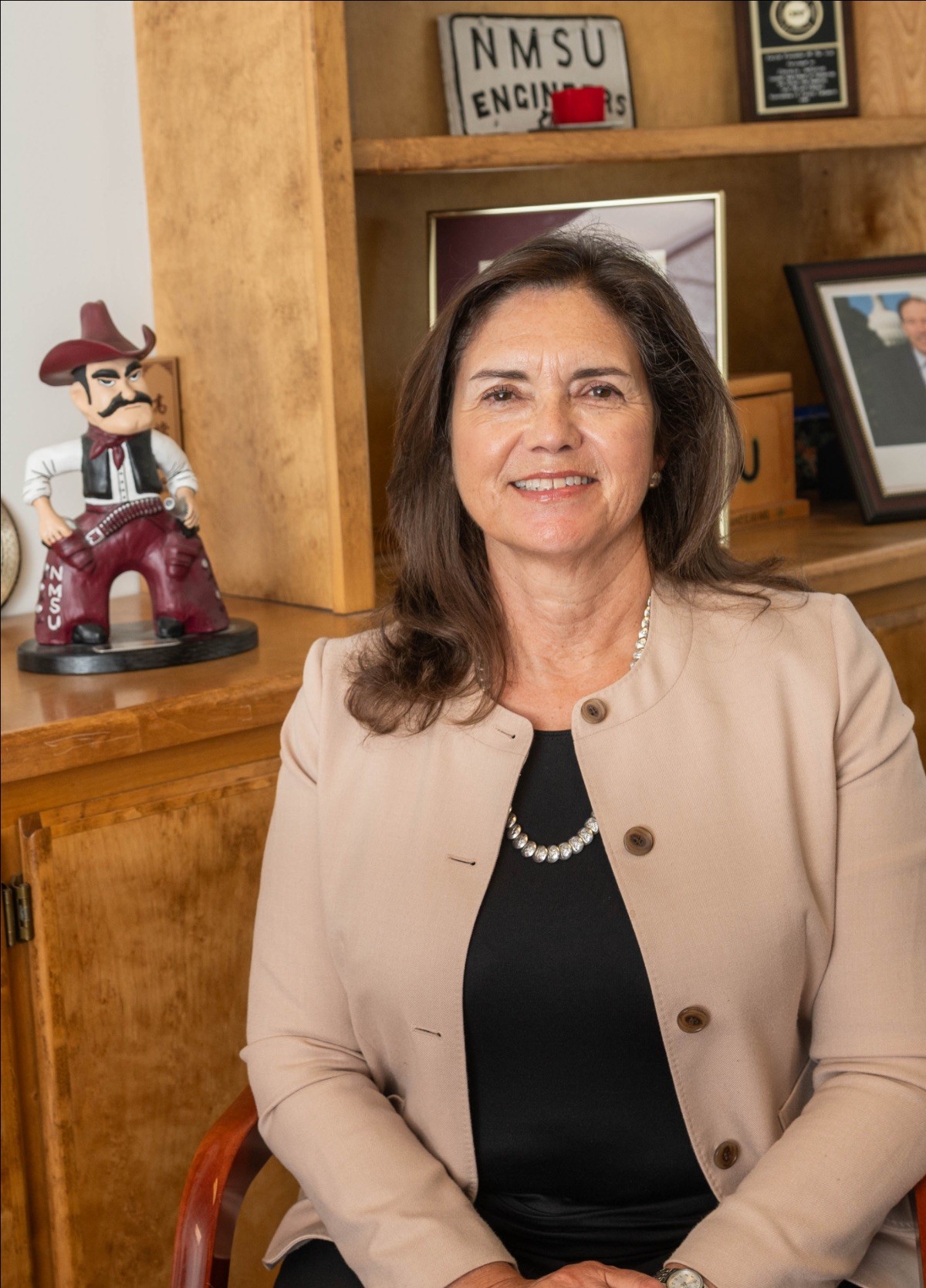Meet the Interim Vice President for Research
About the Interim VPR
Dr. Patricia Sullivan serves as Interim Vice President for Research at New Mexico State University, while also continuing her leadership role overseeing the Physical Science Laboratory. A three-time NMSU graduate, Dr. Sullivan brings more than 40 years of experience as a mentor, innovator, collaborator, and relationship-builder.
Throughout her career, Dr. Sullivan has been nationally recognized for her leadership and community service. She has played a vital role in strengthening research partnerships across New Mexico and beyond, while advancing NMSU’s efforts to achieve Carnegie R1 status. As associate dean for outreach in the College of Engineering, she has been a driving force in expanding strategic partnerships and workforce development initiatives.
Dr. Sullivan’s research leadership includes serving as principal or co-principal investigator on more than $21 million in new proposal submissions with faculty over the past two years, resulting in a current research portfolio with $2.5 million in annual expenditures. She has also collaborated on more than $300 million in awarded or pending proposals through public-private partnerships that bring direct economic development impact to the state.
Her leadership has been instrumental in expanding NMSU’s research capacity in areas such as water-energy initiatives and in advancing access to STEM education for New Mexico’s remote, rural, and tribal communities.
In addition to her work at NMSU, Dr. Sullivan serves on the Western Interstate Commission on Higher Education for New Mexico and on the New Mexico Spaceport Authority. She holds a Ph.D. in Industrial Engineering, a master’s degree in Economics, and a bachelor’s degree in Biology, all from NMSU.
